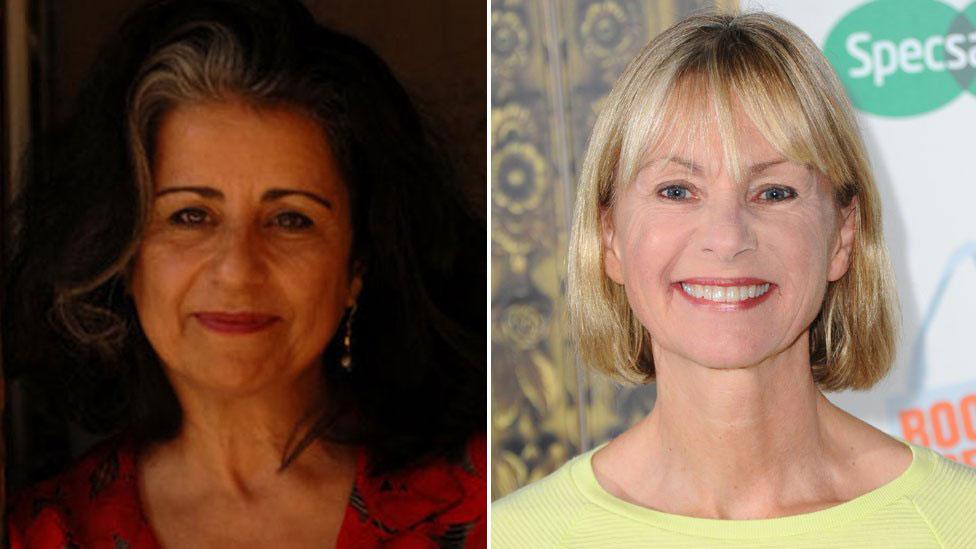Baileys Prize: Naomi Alderman wins for 'shocking' sci-fi novel The Power
- Published
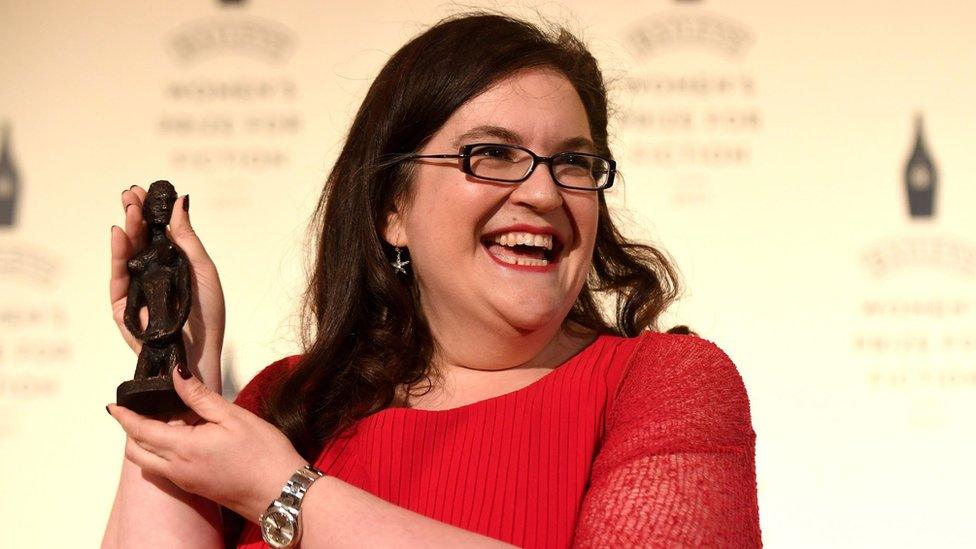
The Power is Naomi Alderman's fourth novel
Naomi Alderman has won the Baileys Women's Prize for Fiction for her feminist sci-fi novel The Power.
Her book envisages a world in which women have developed the ability to give electric shocks at will.
The chair of this year's judges, Tessa Ross, praised Alderman's "brilliantly imagined dystopia, her big ideas and her fantastic imagination".
Alderman received the £30,000 prize at a ceremony at London's Royal Festival Hall on Wednesday.
"The women's movement is more vital to me than any other utility that might come into my house," Alderman said as she accepted her prize to loud cheers and applause.
"The support and power of other women has been more vital to me than electricity," she went on.
The literary prize's co-founder Kate Mosse also paid tribute to its first ever winner Helen Dunmore, who died earlier this week, describing her as "an exquisite poet, and extraordinary writer for children and young adults".
'Full electro-death'
The Power, Alderman's fourth novel, was published in October last year and explores themes of power, violence and gender.
It follows four main characters as they adjust to a future in which women can inflict shocks "from a tiny tingle all the way to full electro-death".
On her website, external, Alderman describes The Power as "a novel of ideas".
"What would happen if women had the power to cause pain and destruction? Do we really believe that women are naturally peaceful and nurturing? How much of gender is in our expectations of violence?" she asks.
Alderman's win comes just over a decade after her debut novel, Disobedience, won the 2006 Orange Award for New Writers. That novel is being made into a film starring Rachel Weisz and Rachel McAdams.
The Power, meanwhile, is being adapted for a TV series by Sister Pictures, co-producer of hit ITV crime drama Broadchurch.
Alderman, who will write the screenplay, has said the series would "expand" on the stories told in her novel.

What is the Women's Prize for Fiction?
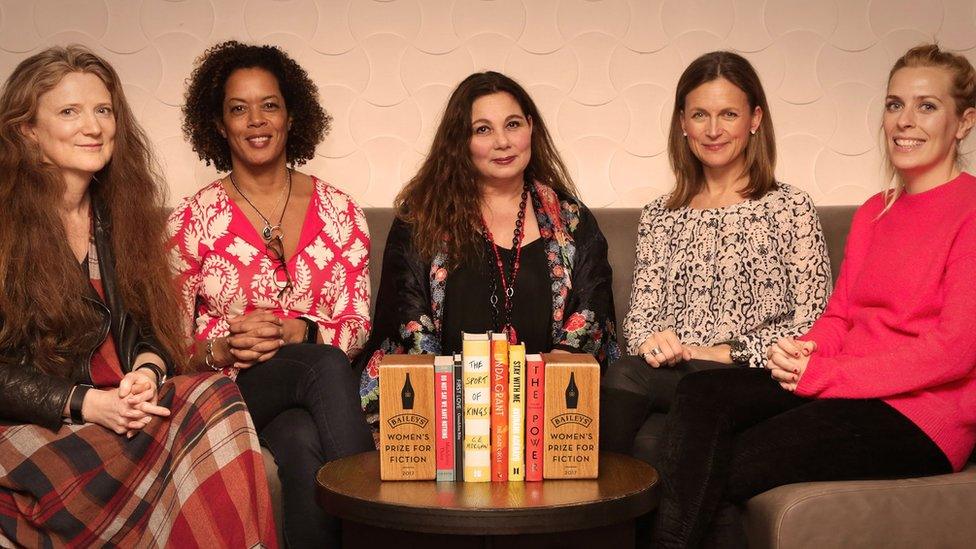
This year's Baileys Prize judges (l-r): Sam Baker, co-founder of The Pool, novelist Aminatta Forna; Tessa Ross, CEO House Productions; broadcaster Katie Derham and comic Sara Pascoe
The Women's Prize for Fiction is awarded annually to what judges consider the best novel of the year written in English by a female author
It was co-founded by author Kate Mosse, who believed female authors were often overlooked for major literary prizes
Previous winners of the prize include Zadie Smith, Ali Smith, Lionel Shriver and Chimamanda Ngozi Adichie
The first winner in 1996 was the late novelist and poet Helen Dunmore
Orange sponsored the award for 17 years before Baileys took over in 2014
The winning author receives £30,000 in prize money and a Bessie - a limited edition bronze figurine

Alderman, who grew up in London, is professor of creative writing at Bath Spa University.
Her other novels include The Lessons (2010) and The Liars' Gospel (2012). She is one of the presenters of Science Stories on BBC Radio 4.
She also co-created the best-selling smartphone fitness game Zombies, Run! and wrote the Doctor Who spin-off book Borrowed Time (2011).
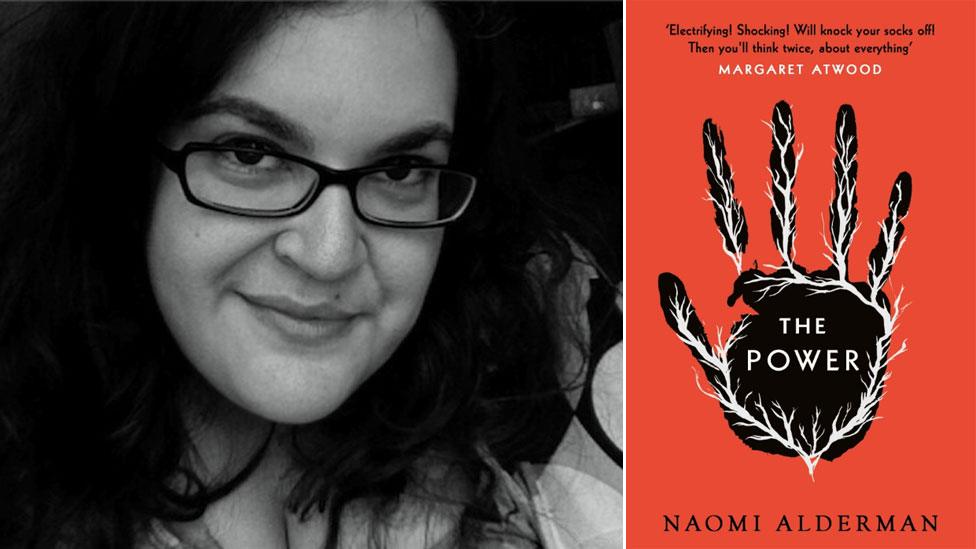
She has been mentored by author Margaret Atwood, whose novel Hag-Seed appeared on this year's Baileys long-list.
Atwood's quote on the front cover of The Power reads: "Electrifying! Shocking! Will knock your socks off! Then you'll think twice about everything."
The Power beat five other novels on the shortlist, which included one previous winner, Linda Grant, and one first-time novelist, Ayobami Adebayo.
The shortlist in full:
Stay With Me - Ayobami Adebayo
The Power - Naomi Alderman
The Dark Circle - Linda Grant
The Sport of Kings - CE Morgan
First Love - Gwendoline Riley
Do Not Say We Have Nothing - Madeleine Thien
This is the final year that the prize will bear the Baileys name. In 2018, the title will revert to the Women's Prize for Fiction and be supported by "a family of sponsors".
Lisa McInerney won the prize last year with her debut novel, The Glorious Heresies.

Follow us on Facebook, external, on Twitter @BBCNewsEnts, external, or on Instagram at bbcnewsents, external. If you have a story suggestion email entertainment.news@bbc.co.uk, external.
- Published31 May 2017
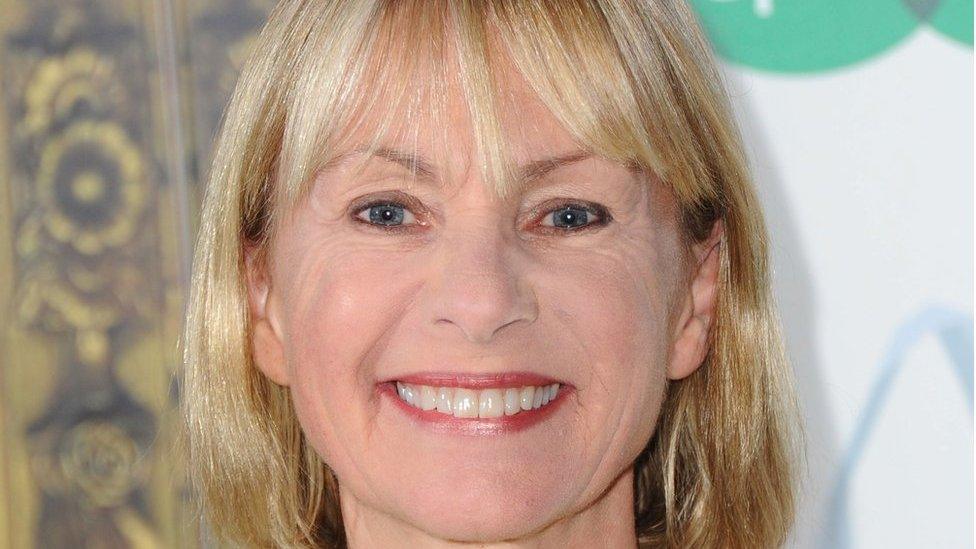
- Published3 April 2017
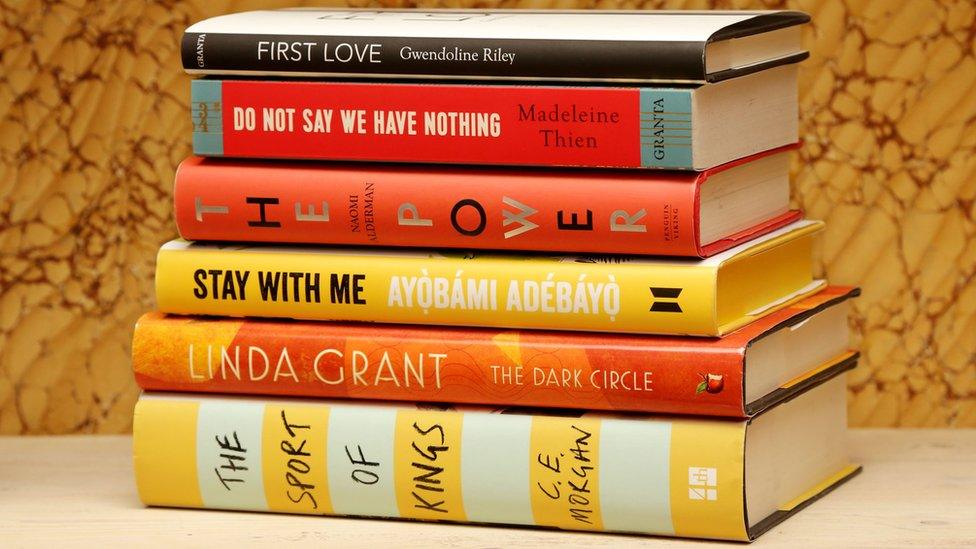
- Published31 January 2017
